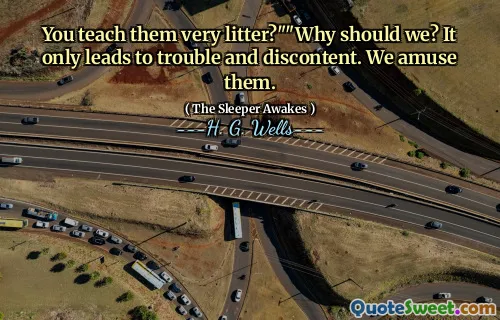
What right have they to hope? They work ill and they want the reward of those who work well. The hope of mankind - what is it? That some day the Over-man may come, that some day the inferior, the weak and the bestial may be subdued or eliminated. Subdued if not eliminated. The world is no place for the bad, the stupid, the enervated. Their duty - it's a fine duty too! - is to due. The death of the failure! That is the path by which the beast rose to manhood, by which man goes on to higher things.
The quote raises a significant question about the nature of hope, particularly in the context of merit and effort. It suggests that those who do not contribute positively to society and do not possess the qualities of the ideal worker have no foundation for hope. The assumption is that hope should be reserved for those who truly strive and succeed, rather than for those who fail to meet societal standards.
Furthermore, the text introduces the concept of the "Over-man," hinting at a future where the weaker elements of humanity are suppressed or eliminated. It implies that the progress of humanity hinges on the removal of those deemed inferior, allowing for the advancement of stronger, more capable individuals. This perspective presents a stark view of survival and evolution, focusing on the relentless march toward higher ideals and achievements at the expense of the less fortunate.











